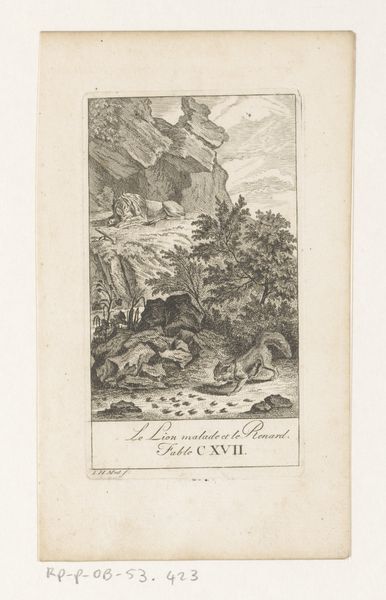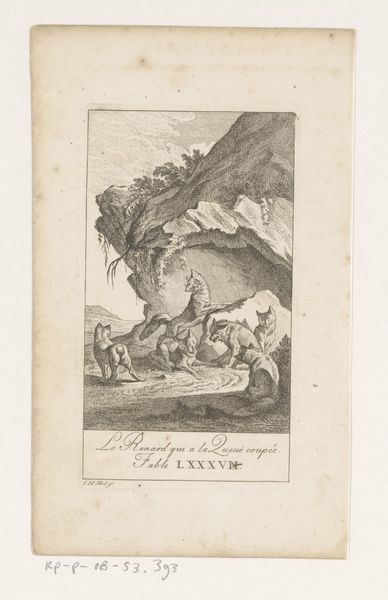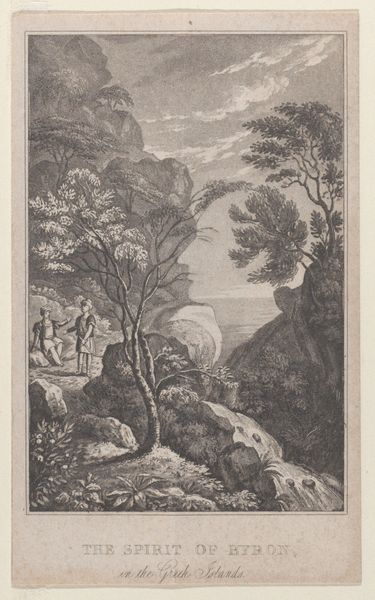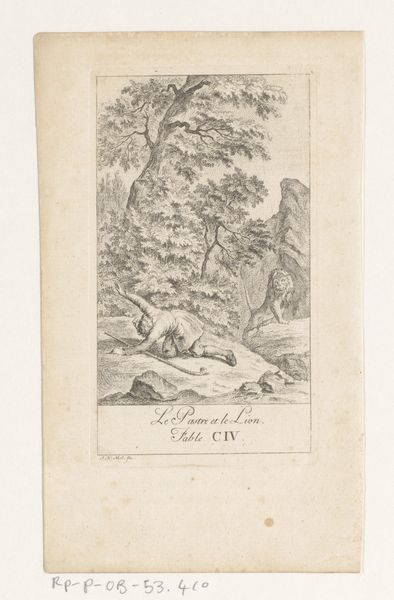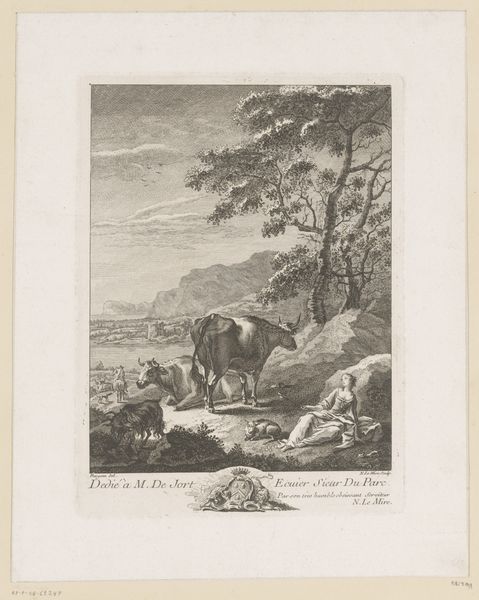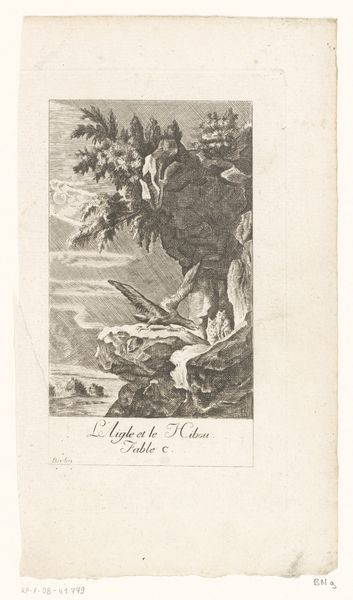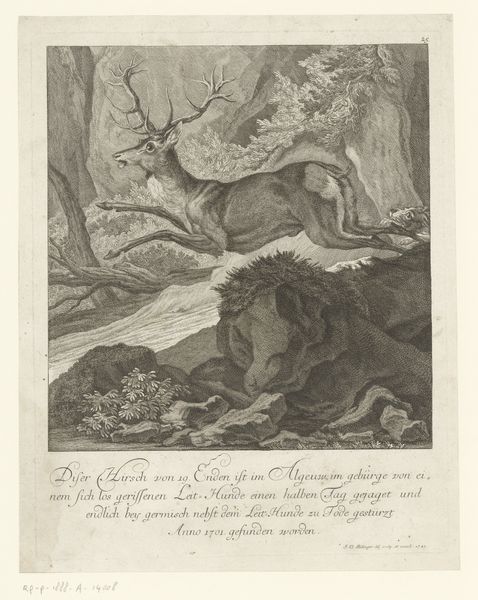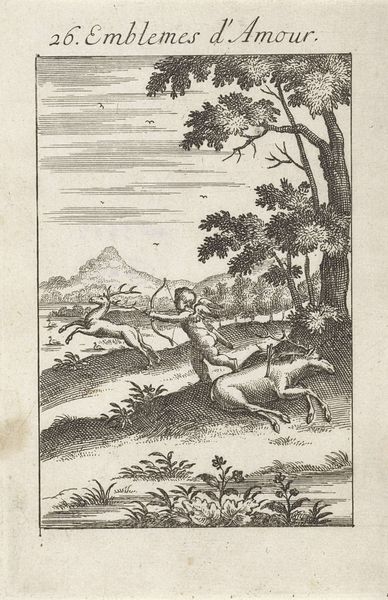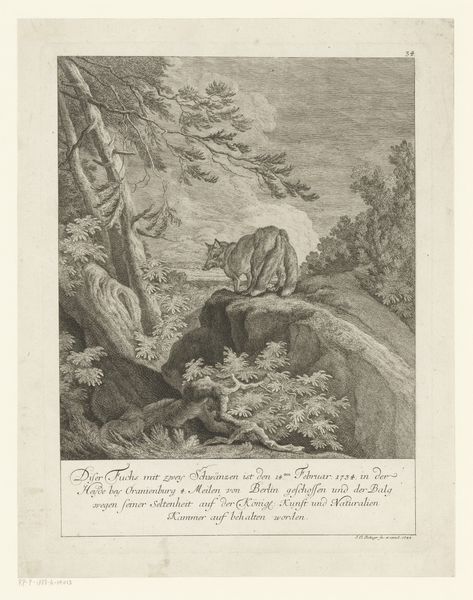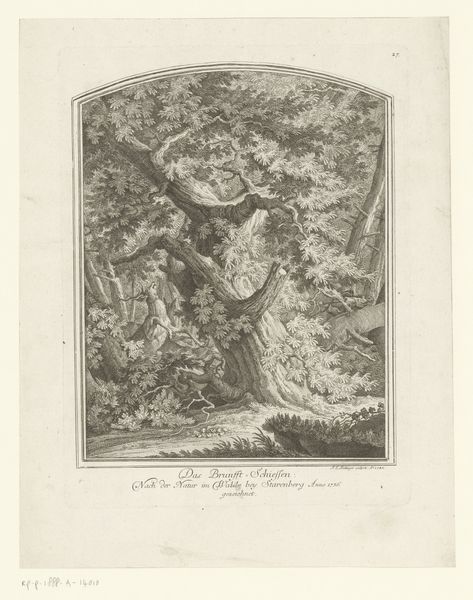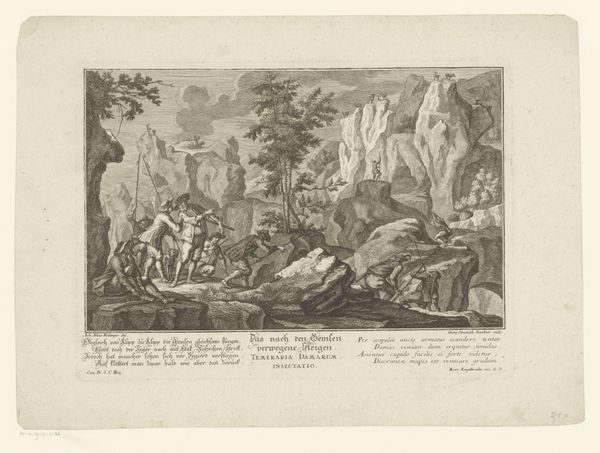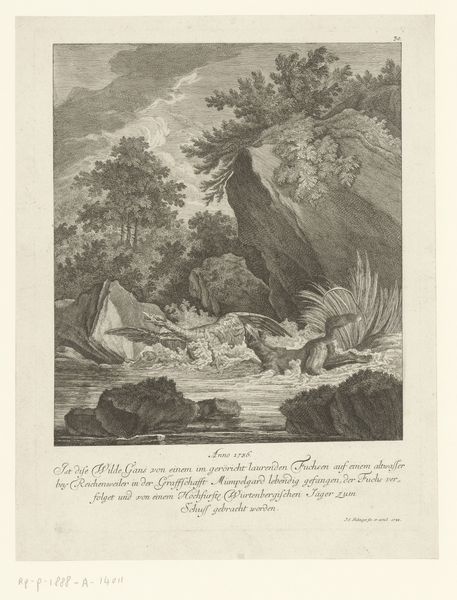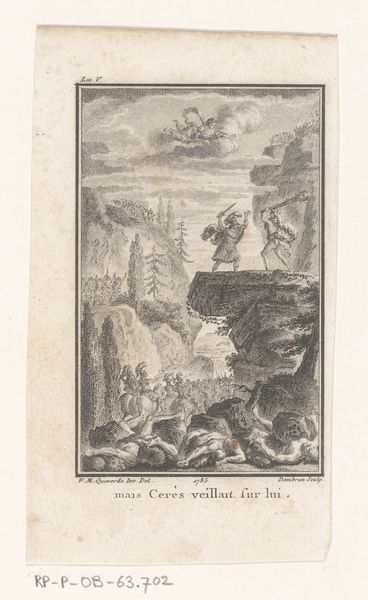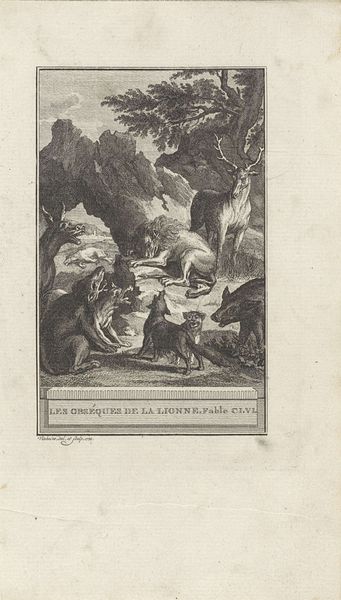
Dimensions: height 163 mm, width 97 mm
Copyright: Rijks Museum: Open Domain
This print, depicting a sick lion and a fox, was made by Pierre Savart in the 1700s. It’s an etching, meaning that Savart would have used a sharp needle to draw through a waxy ground on a copper plate. The plate was then submerged in acid, which bit into the exposed lines. After removing the ground, the plate could be inked and printed. The resulting image has a distinctive graphic quality. You can see how the density of lines creates shading and texture, defining the rocky landscape and the animals within it. Notice the contrast between the solid, looming rocks and the delicate foliage. Etching was a popular medium at the time, prized for its ability to capture fine detail and tonal variation. It was a relatively quick and efficient way to produce multiple images, which could then be disseminated widely. The print medium, therefore, perfectly suited the fable, allowing its moral lesson to reach a broad audience, far beyond those who could afford original paintings or sculptures. The print becomes a commodity, traded and consumed as readily as the story it tells.
Comments
No comments
Be the first to comment and join the conversation on the ultimate creative platform.
